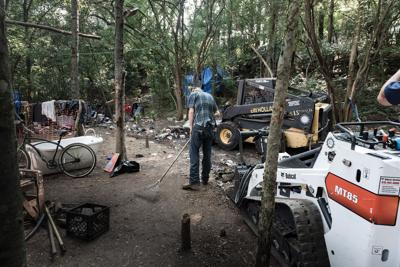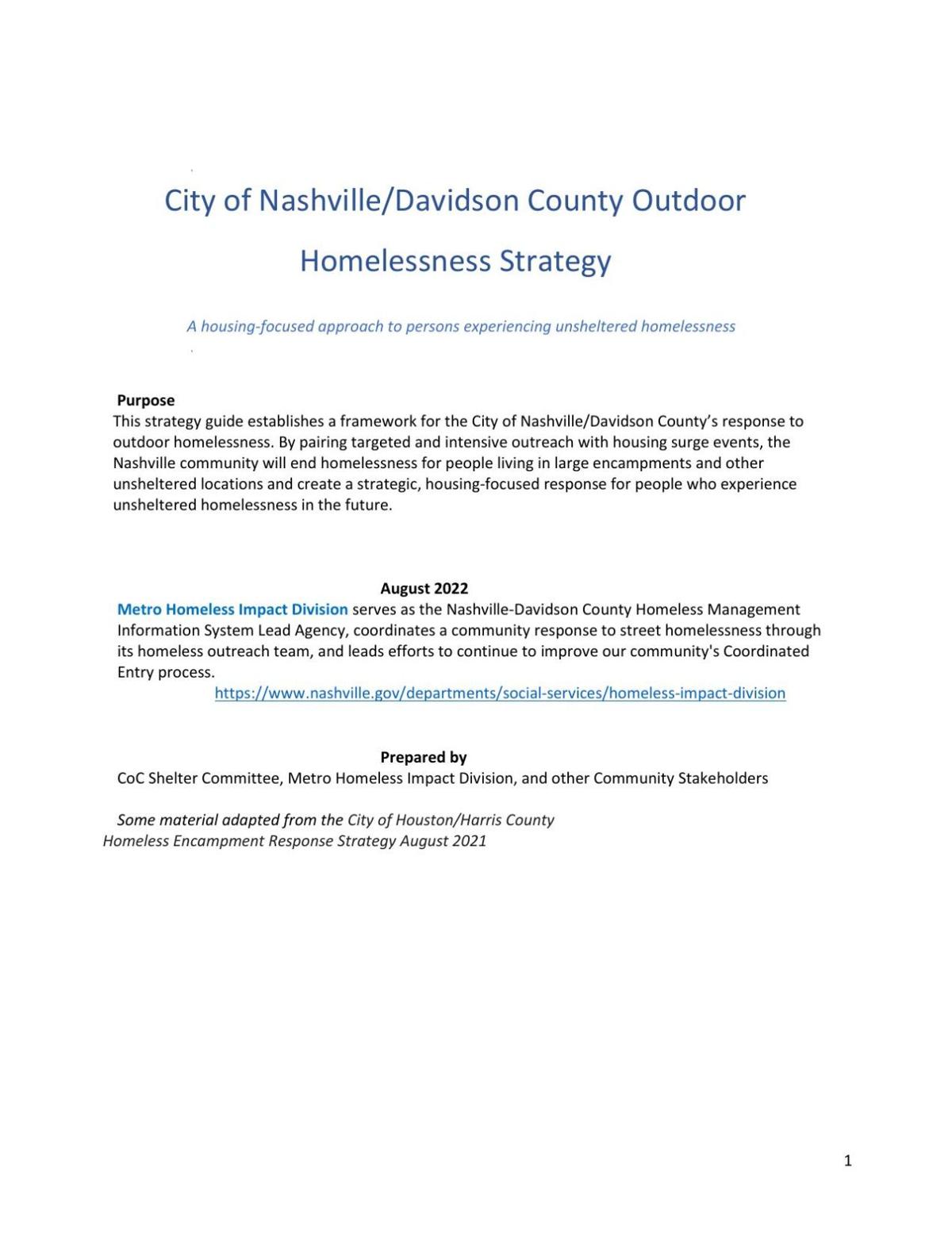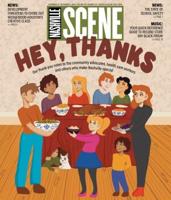A large encampment in a greenway in West Nashville has attracted media attention and local consternation over the past few years, and now the city is ready to move the unhoused folks who call the park home and place them into housing. The mayor’s office confirms to the Scene that the plan is now underway and that notifications about the plan were sent to Brookmeade Park residents on Tuesday.
According to materials obtained by the Scene, the camp will not be closed right away. The goal is to have every person experiencing homelessness at Brookmeade housed by Christmas, and for the camp to be closed by Jan. 1. About 45 individuals are estimated to be at Brookmeade Park.
Those same materials indicate the effort will be helped by an increase in interim housing and on-site supportive services like health care and addiction recovery programs. Those resources are available following the Metro Council’s approval Mayor John Cooper’s $50 million plan to address homelessness in October — the Scene noted at the time that advocates welcomed the resources but stressed the city still needed to secure more long-term solutions.
The Brookmeade encampment in a way became the face of Nashville’s work to house the homeless population, in part due to sustained cajoling by controversial resident group Reclaim Brookmeade Park. The announcement to close Brookmeade arrives just more than a week after a resident of the camp, Drandon “Chief” Brown, was killed by Metro police officers.
The Metro Homeless Impact Division announced earlier this month that Brookmeade was one of two local camps that would be prioritized for intervention based on a decision by an assessment team, and noted that there were no immediate plans for closure. The team also mapped out a new camp assessment strategy for the city to follow when it came to intervening with and closing camps, including a scoring system to determine vulnerability.
The city’s efforts to deal with homeless camps attracted controversy earlier this year, when officials from the Metro Homless Impact Divison, the city's coordinating agency for homelessness services, announced a plan was already in motion to house people living beneath the Jefferson Street Bridge and to close the camp. Members of the Continuum of Care Homelessness Planning Council — a body of stakeholders including service providers and Metro councilmembers — said the plan wasn’t properly presented to them for feedback, and raised concerns that it disregarded community and expert input. Some also worried that prioritizing outdoor homelessness could divert resources from vulnerable individuals in shelters or who had been waiting for housing for longer periods.
Former MHID staffers previously told the Scene they were concerned the emphasis on developing a camp strategy was based on public pressure rather than a data-driven approach — interim MHID director April Calvin pushed back against that assertion.
Months later, Open Table Nashville, a nonprofit serving unhoused residents, also criticized the new camp assessment strategy. In a public comment to the Homelessness Planning Council, they wrote: “We cannot condone or participate in the implementation of a strategic plan that stipulates the forced closure of camps. … Until we have enough indoor options for everyone who needs them, we are against closing, fencing off, and policing land, especially land that belongs to the public.”
A copy of the housing strategy shared with the Scene is below.






